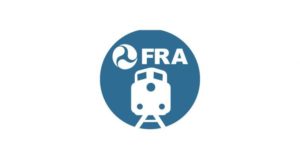CN Aurora, Ill, overpass cost in the hands of the courts
Written by jroodIt's been nearly two years of legal battles over Canadian National Railway Company's purchase of the Elgin, Joliet and Eastern rail line, and it all comes down to this, the Aurora Beacon-News reports. Sometime in the next four months, the U.S. Court of Appeals is expected to rule on whether Canadian National will have to pay more to separate grade crossings in Aurora and Lynwood, and whether the federal Surface Transportation Board conducted a thorough study of the impacts of the $300-million sale before approving it in 2008.
Separating a grade
crossing can involve building an overpass or an underpass to let carry motor
vehicle traffic.
Canadian National intends
to divert its freight trains from a crowded Chicago rail system through the
suburbs, a move that eventually would quadruple the number of trains traveling
through some neighborhoods. The railroad has already begun moving trains over
and is two years into what it calls a five-year transition process.
The railroad, Surface
Transportation Board and a suburban coalition opposed to the sale all made oral
arguments before the court last week in Washington, D.C. The court has decided
to consolidate a flurry of appeals filed over the past two years into one
decision.
The railroad’s beef is
with the three-member Surface Transportation Board, which demanded the railway
pay 67 percent of improvement costs at the rail crossing on Ogden Avenue on
Aurora’s far East Side, and 78.5 percent of similar costs at a crossing in
Lynwood (south of Calumet City, near the Indiana border). The railroad,
however, cited years of precedent, and believes it should only bear about 5 to
10 percent of the costs of separating these crossings, and taxpayers should
have to pick up the rest.
The total cost of
improving those two intersections is estimated at $70 million, with Ogden
Avenue making up between $40 million and $50 million. Even if Canadian National’s
appeal fails, taxpayers will still have to foot the bill for 33 percent, or
about $16 million, of the cost of separating Ogden Avenue.
In arguments before the
Court of Appeals, the railroad’s lawyers called the demand "unprecedented,
unjustified, and … beyond the STB’s regulatory authority for non-major
transactions such as CN’s acquisition of the EJ&E," according to a written
statement. Karen Phillips, a vice president with the company, has said that the
STB has never mandated such a substantial contribution as a condition before.
The railroad pointed out
that it has accepted 73 other conditions imposed by the STB, and made
commitments to 25 of the 33 communities along the rail line to address
environmental and safety issues. Combine that with 108 other mitigation
conditions CN has agreed to, and the company is looking at more than $60
million in costs, according to its statement.
But that’s not enough to
make up for the disruptions in traffic and potential safety hazards these new
trains will cause as they run through formerly quiet suburban neighborhoods,
according to The Regional Answer to Canadian National, an opposition group. TRAC
is led by Aurora Mayor Tom Weisner and Barrington Village President Karen
Darch.
Darch attended the
hearings and listened as TRAC lawyers argued not only that Canadian National
should pay the full amount for the crossings in Aurora and Lynwood, but also
that the entire case should be sent back to the STB for review.
For nearly all of 2008,
the STB conducted an environmental impact study, trying to determine the full
impact of the proposed sale on communities along the EJ&E line. The board
looked at traffic, noise, safety, air quality and other factors, and finally
approved the sale in December of that year.
But TRAC contends that
the study was not thorough and portions of it should be reviewed again. TRAC
filed its appeal in January 2009, just weeks after the sale was approved. In a
response, however, the STB defended its review and STB lawyers made their case
last week, as well.
Within the first quarter
of 2011, the court is expected to return with a decision that will determine
whether the railroad will pay more for the crossings in Aurora and Lynwood and
whether the STB’s review of the sale will stand
Darch said judges asked
probing questions that convinced her they had done their homework. Of
particular interest, she said, were repeated questions about transporting
hazardous materials along the EJ&E. But she refused to
predict the verdict.





